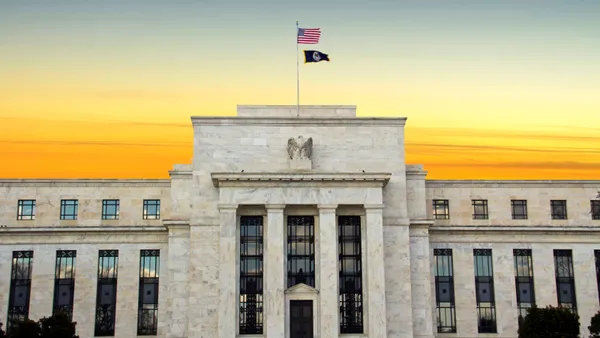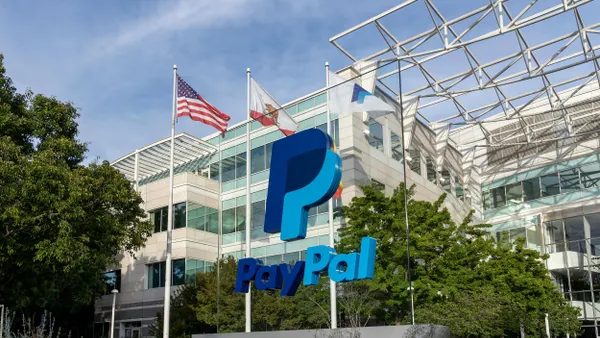Dive Brief:
- HSBC Holdings agreed to pay $192.4 million to resolve an investigation in which it admitted it helped hundreds of U.S. clients hide more than $825 million in assets from the IRS, the Justice Department said Tuesday.
- Prosecutors charged a Swiss unit of the bank with conspiracy to defraud the U.S. but said they would drop the charge in three years if the bank abides by the deal. HSBC entered into two other deferred-prosecution agreements with the U.S. this decade — in 2012 and 2018.
- The bank in recent years has quintupled — to 5,000 — the number of employees assigned to spot suspicious activity, upgraded its technology and hired the Treasury Department’s top anti-money laundering official to oversee its efforts. However, the Bank of England warned HSBC in each of the past two years that it hasn’t sufficiently reformed the way it handles risks such as financial crime and staff conduct.
Dive Insight:
The settlement comes at a time of transition for HSBC. The bank has been without a permanent CEO since August, and interim chief Noel Quinn is reportedly reviewing the entire business. The bank this week announced that its chief risk officer will retire and its chief operating officer will leave the company.
U.S. authorities have been cracking down on offshore tax evasion for more than a decade, and several other banks have come forward to admit wrongdoing. UBS paid $780 million after saying in 2009 that it helped thousands of clients cheat the IRS. Credit Suisse reached a $2.6 billion deal in 2014. Eighty more Swiss banks avoided U.S. prosecution by agreeing to pay $1.37 billion in penalties and voluntarily disclosing their violations, according to Bloomberg.
HSBC Switzerland helped 720 U.S. clients hide $825 million in assets from the IRS between 2000 and 2010, it admitted in a statement of facts. HSBC bankers advised clients to withdraw funds in amounts less than $10,000 to avoid reporting requirements; provided credit, debit and travel cards to access funds; and told clients not to receive bank statements in the U.S. mail or carry them back from Switzerland. Between 2002 and 2006, bankers used an HSBC Switzerland account to purchase art at auction for a client, according to the statement of facts.
The $192.4 million penalty includes $60 million to account for the unpaid taxes resulting from the bank’s role in the conspiracy, the Justice Department said. The fine also includes $71.8 million in revenue that must be forfeited, representing the fees earned from handling the undeclared accounts.
HSBC contacted the Justice Department in December 2008, conducted an internal investigation and reported its misconduct, according to the agreement. The bank has undertaken “substantial remedial measures and extensively cooperated” with authorities, the Justice Department said.
But Tuesday’s deal isn’t the first instance in which HSBC has run afoul of U.S. authorities. The bank paid $1.9 billion in penalties in 2012, admitting it failed to prevent Latin American drug cartels from laundering money and violated U.S. sanctions against Iran. Months after that deal expired, HSBC agreed to pay about $100 million to resolve an investigation into currency rigging. The bank also agreed in October 2018 to pay $765 million over allegations that it sold faulty residential mortgage-backed securities.
HSBC Switzerland’s U.S. presence has decreased more than 85% since the late 2000s, according to the agreement.













